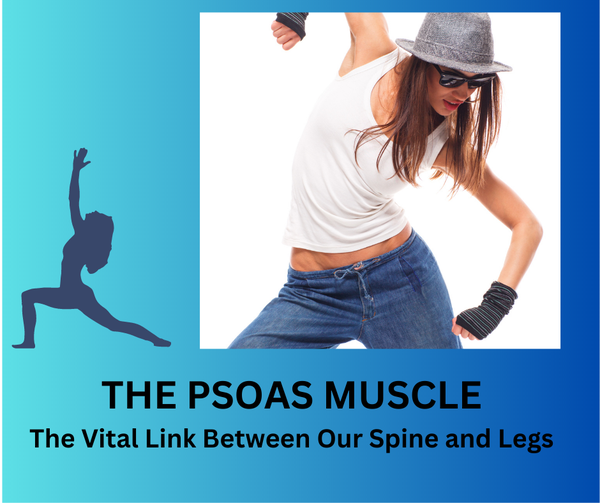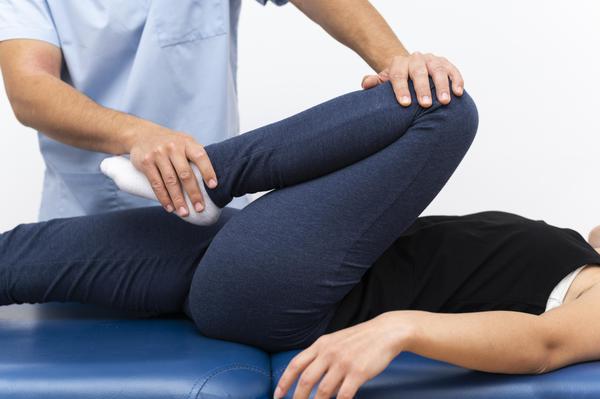

The human body is a marvel of interconnectedness, where muscles and tissues work together to allow us to move and perform daily activities. One such crucial muscle is the psoas muscle, which plays a vital role in connecting our spine to our legs. In this blog post, we will explore the anatomy, function, common issues, and ways to care for the psoas muscle.
The psoas muscle, specifically the iliopsoas, is composed of two muscles: the psoas major and the iliacus. These muscles originate from different areas but merge together, forming a shared tendon that inserts into the femur (thigh bone). The psoas muscle runs from the lower back, passing through the pelvis, and attaches to the inner part of the upper thigh.
The primary function of the psoas muscle is hip flexion, which allows us to lift our legs while walking, running, or climbing stairs. Additionally, it contributes to stabilizing the spine, maintaining posture, and supporting core strength. The psoas muscle's deep location makes it less visible but no less important in our daily movements.
Like any muscle, the psoas can experience issues that may cause discomfort and affect mobility. Some common problems associated with the psoas muscle include:
Psoas Muscle Strain: Sudden movements, overuse, or trauma can lead to a strained or torn psoas muscle. Symptoms may include pain in the front of the hip or groin, muscle spasms, tenderness, and difficulty with hip movements.
Psoas Muscle Tightness: Prolonged sitting, poor posture, or lack of stretching can result in tightness and shortening of the psoas muscle. This tightness can contribute to lower back pain, hip pain, limited hip mobility, and postural imbalances.
Psoas Tendinitis: Tendinitis refers to inflammation of the tendon connecting the psoas muscle to the hip or lower spine. It can occur due to repetitive overuse and lead to pain, tenderness, swelling, and discomfort during hip flexion movements.
Psoas Impingement: Psoas impingement occurs when the psoas muscle becomes compressed or trapped between the femur and the pelvis. This can result in pain in the front of the hip, groin, or deep in the abdomen, particularly during activities involving hip flexion.
Caring for the Psoas Muscle:
Taking care of the psoas muscle is essential for maintaining optimal functionality and preventing issues. Here are some tips to promote the health of your psoas:
Stretching and Strengthening: Regular stretching and strengthening exercises can help maintain flexibility and strength in the psoas muscle. Gentle hip flexor stretches, lunges, and core-strengthening exercises can be beneficial.
Posture Awareness: Maintaining good posture throughout the day, whether sitting or standing, can help prevent unnecessary strain on the psoas muscle. Regular breaks from prolonged sitting and ergonomically supportive workstations can also be beneficial.
Regular Movement: Engaging in regular physical activity and avoiding prolonged periods of inactivity can keep the psoas muscle and the entire body active and healthy. Incorporate activities like walking, swimming, or yoga into your routine.
Heat and Cold Therapy: Applying heat or cold therapy to the affected area can help reduce inflammation, alleviate pain, and promote muscle relaxation. Heat therapy, such as warm compresses or heating pads, can help relax tight muscles, while cold therapy, like ice packs, can reduce inflammation and numb pain. It's important to follow proper guidelines and consult with a healthcare professional for appropriate usage.
Treatment: If you're dealing with ongoing pain or discomfort associated with the psoas muscle, it's crucial to take action promptly. Seeking the expertise of a Bowen Therapist can be highly beneficial in this regard. A Bowen Therapist will carefully evaluate your condition, employing techniques to release tension, alleviate tightness, and enhance the overall function of the muscle. They will work with you to create a personalized treatment plan that may involve targeted exercises, appropriate referrals, or other interventions tailored to your specific requirements. By consulting with a Bowen Therapist, you can take a proactive step toward addressing your psoas muscle issues and regaining optimal well-being.Mind-Body Practices: Practices like yoga, Pilates, and tai chi can help promote flexibility, strength, and body awareness, which can indirectly benefit the psoas muscle. These practices often emphasize proper alignment, mindful movement, and breath control, all of which can contribute to overall muscle balance and support the health of the psoas muscle.
Conclusion:
The psoas muscle is a crucial link between our spine and legs, playing a significant role in hip flexion, core stability, and posture. Issues such as strains, tightness, tendinitis, and impingement can cause discomfort and affect mobility. By incorporating regular stretching, strengthening exercises, maintaining good posture, practicing self-care techniques and seeking the services of a Bowen Therapist, we can support the health and well-being of the psoas muscle.
Take care of your psoas muscle, and enjoy the benefits of improved movement and overall well-being.
If you think your Psoas may be a contributing factor to your discomfort, Book here for you Bowen Therapy Treatment today - https://calendly.com/panaseahealing/bowen-therapy-session

Image by <a href="https://www.freepik.com/free-photo/physiotherapist-doing-exercises-with-female-patient_11464098.htm#query=bowen%20therapyhips&position=21&from_view=search&track=ais">Freepik</a>

Hello!
I am a Perth hills girl. I love the outdoors, nature and camping. My passion is learning ways to assist the body, mind and spirit to heal. I assist you on your journey to true health and healing and support you to overcome your challenges, to look outside the box and to find your inner doctor.
Enjoy the benefits of Bowen at my tranquil home clinic in Lesmurdie, Perth Hills.
Talk soon,
Leanne Jones